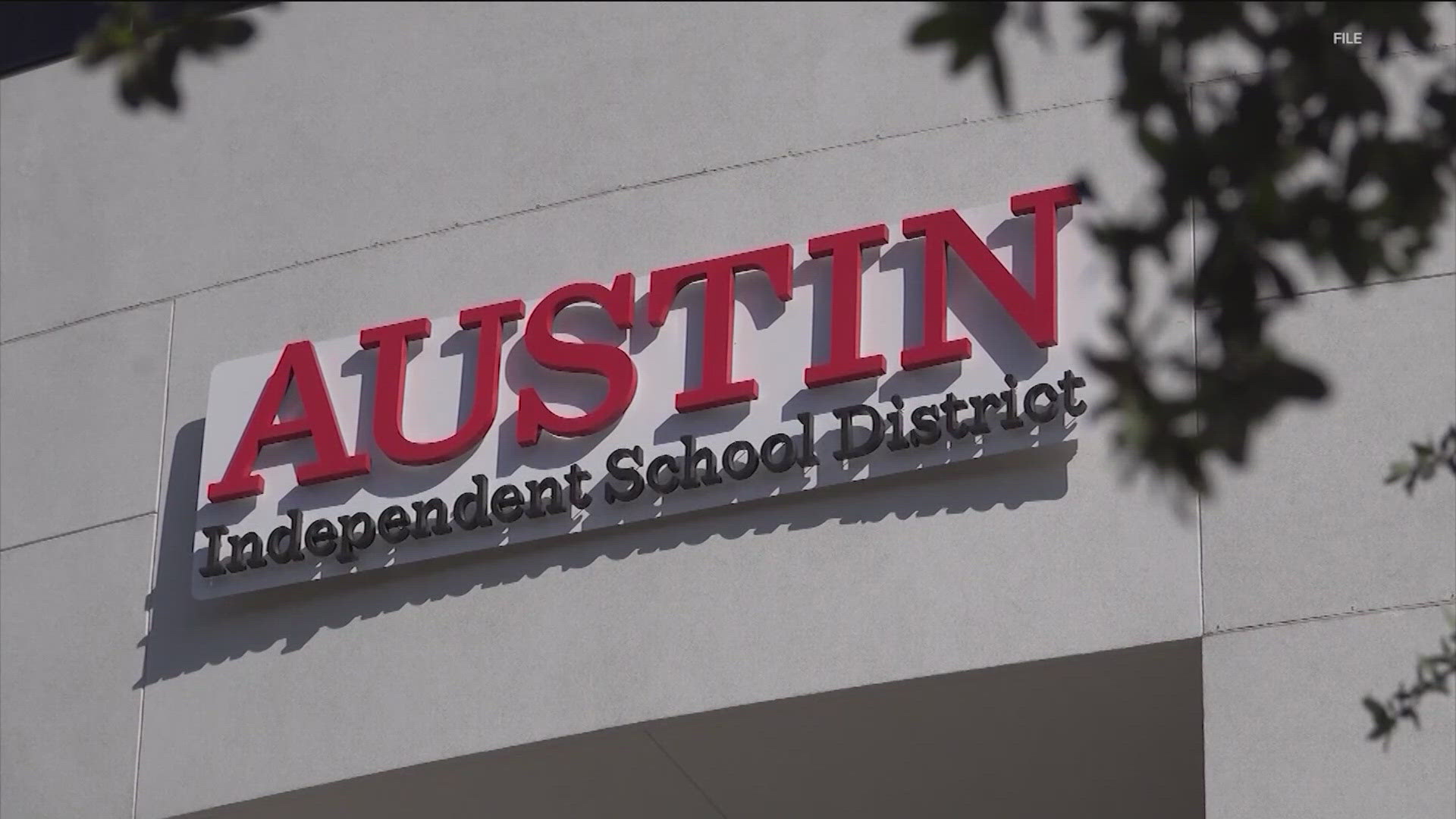AUSTIN, Texas — Austin ISD's (AISD) special education program was recently evaluated through an audit that determined seven specific areas where improvements would be beneficial.
The audit, conducted by Stetson & Associates, Inc., evaluated the special education program's past four years, in compliance with an agreement with the Texas Education Agency (TEA).
Prior to the audit, the district was under scrutiny due to the delay in processing evaluations for the special education department.
"It was stressful and like, I felt that it was unfair because I was like, 'What?' I feel like I had a target on my back," Nylah Dominguez, an AISD seventh grader, said.
Cases like Dominguez's are what led to investigations into AISD's evaluation backlog and the installation of TEA monitors last September.
Dominguez's mother, Gerry Castillo, said her daughter was asked to leave Ann Richards School for Young Women Leaders because she was not performing well. But she said the school wasn't providing the proper support due to the backlog of the evaluations.
The first issue reported in the audit is a lack of educators on a national level. To combat the lack of jobs being filled, the district has attempted to create more incentives for potential special education teachers, including adding a $7,000 stipend, increasing pay for certain roles (including psychologists and service providers) and offering flexible schedules.
But despite the district’s efforts, the program, which reaches more than 120 campuses, has still faced other concerns. Among these are insufficient systems for data tracking and management, along with a weak professional development system.
RELATED: 'I'm exhausted from all the fighting' | Austin ISD approves alternative plan, avoids state takeover
“Currently, Austin ISD utilizes a data management system for special education [EasyIEP] that has not provided data for reliable tracking and monitoring of real-time information regarding timeline compliance for referrals, evaluations and ARD [Admission, Review and Dismissal] meetings,” the audit stated.
"The TEA intentionally did not provide services for kids, and that creates an enormous problem with the district. Now take that, not just over one year, but take that over 16 years," Ken Zarifis, the president of Education Austin, a teacher's union, said.
Zarifis said the problem is with the state's support of public schools.
"They didn't want to spend the money on special ed services. They still don't want to spend money," Zarifis said. "We are in the bottom 10 states nationally in per-pupil funding, and the pupils that get the least support are special ed students."
In relation to the Individualized Education Program (IEP), some students have not received specific need-based placements, according to the audit. However, Austin ISD is also working to fix its current focus to create a more inclusive system.
Additionally, some Austin ISD schools have seen a lack of responsibility "in both meeting compliance responsibilities and creating a positive learning climate for their children," the audit said.
One of the main issues also appears to be the difficulty in relationships between some parents and schools. According to a survey from earlier this year, approximately 36% of parents stated their satisfaction with the current special education evaluation process, while 7.8% strongly disagreed and others fell somewhere in between.
While "the majority of Austin ISD parents of students with disabilities are satisfied with practices," the audit said at the same time, "the percentage of parents who either disagreed or strongly disagreed with several practices" is also high.
Going forward, Austin ISD is creating training to ensure stronger relationships between parents and schools in the area.
AISD sent the following statement in response to the audit:
"We're grateful for the deep work and knowledge that came out of the recent Stetson audit. The audit findings were in alignment with recent critical work and priorities for our district, and the results reinforce the steps we're taking to address systemic challenges as we continue our work to improve special education services for over 12,000 students in Austin ISD. This will be done in partnership with our schools, families, and community, as we strive to collectively and respectfully work together to create avenues for children to learn in the best environment possible. Our next step in that mission is to finalize a strategic plan for special education that will be submitted to the TEA by April 30. We look forward to moving our work forward and working with the TEA, our dedicated Austin ISD team members, and our committed families to improve the quality of our services."

